You are here: Foswiki>Dmi Web>DmiSummerSchool>SummerSchool2010>AdvancedProgramProjects>WebCurrencies (27 May 2014, AnneHelmond)Edit Attach
Web Currencies
Paper citation: Gerlitz, Carolin, and Anne Helmond. 2013. The Like Economy: Social Buttons and the Data-Intensive Web. New Media & Society 15 (8): 134865. doi:10.1177/1461444812472322. http://nms.sagepub.com/content/15/8/1348.abstract .Team Members
Vera Bekema, Carolin Gerlitz, Brittney Fosbrook and Anne HelmondIntroduction
Digital methods research has primarily focused on the link, the website, spheres and the search engine as important methodological tools for engagement. As we have seen since the emergence of 'web 2.0' many of the categories and currencies that helped to make sense of the web, by ranking and recommending, are collapsing. How well do our current research methods that do not explicitly account for the intricacies introduced by social networking activities hold up? How do we account for and accurately capture likes, shares and comments on social networking sites? Do these activities provide a new currency for the web?Research Question
Do social media activities create a web currency outside of the link?Method
- Search for the top 100 results for oil spill in Google Web, Google News and Google Blogs.
- Collected the following numbers for the top 100 results in each sphere (web, news, blogs):
- Automated Counts (Tool created by DMI):
- Number of Likes on Facebook: http://developers.facebook.com/tools/lint/
- Number of Shares on Facebook: http://www.facebook.com/share/ Link to share - custom URL - enter
- Total FB Social Index Number (likes, shares, clicks, comments)
- Links and retweets through Twitter
- Manually Counted:
- In-Links to each of the sites from web: Search for the (number of) inlinks to the top 100 using Yahoo! Site Explorer, click on inlinks.
- Whether or not the article contained a share or like button
- Number of Diggs: Calculated total Diggs through Digg search
- Divided sites from web, blogs and news into categories
- Visualized
- Automated Counts (Tool created by DMI):
Findings
Three Areas Addressed:- Are the top sites according to Google Web, Google News and Google Blogs correlated to social media activities on these sites?
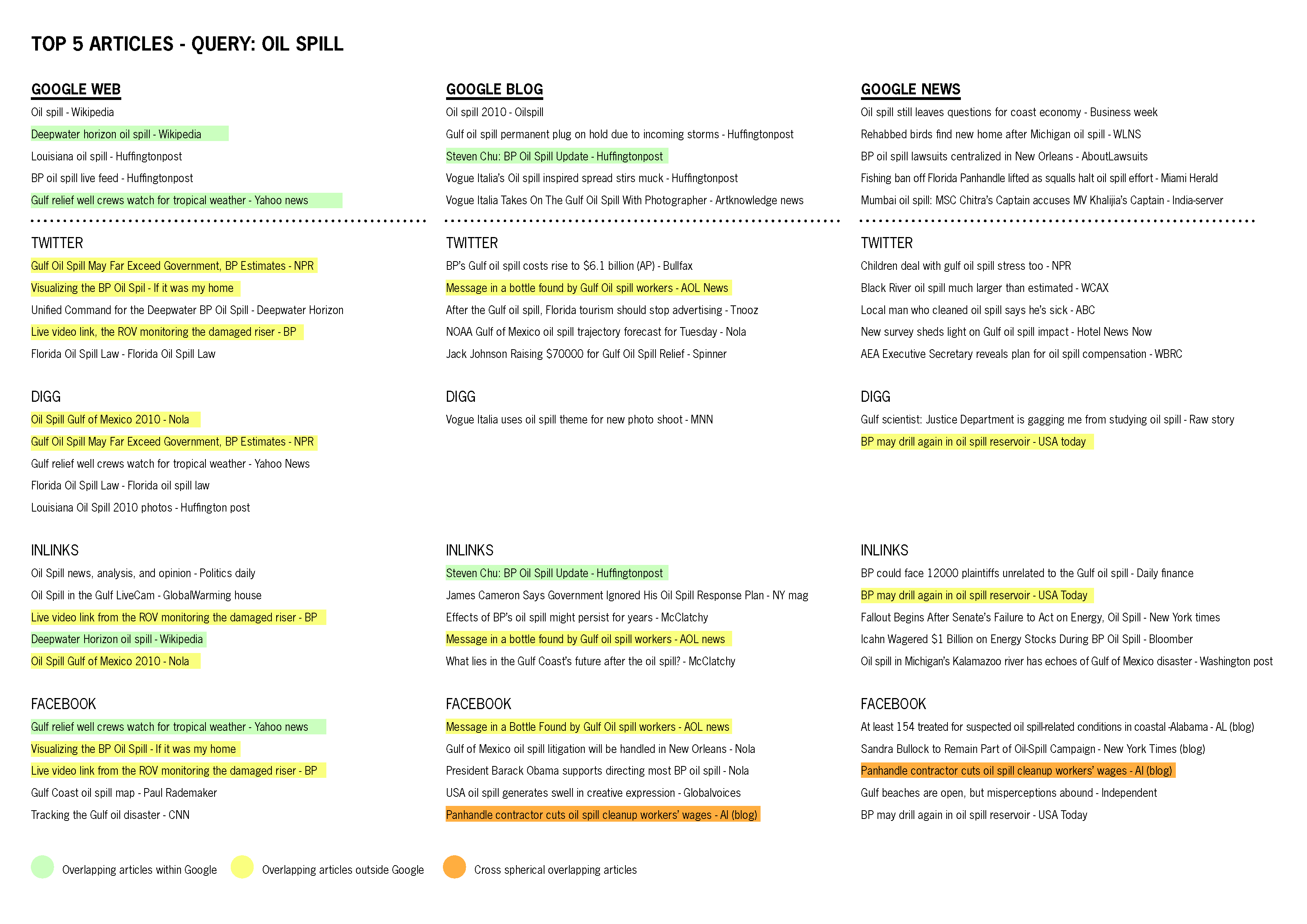 Sphere Overlap
Sphere Overlap
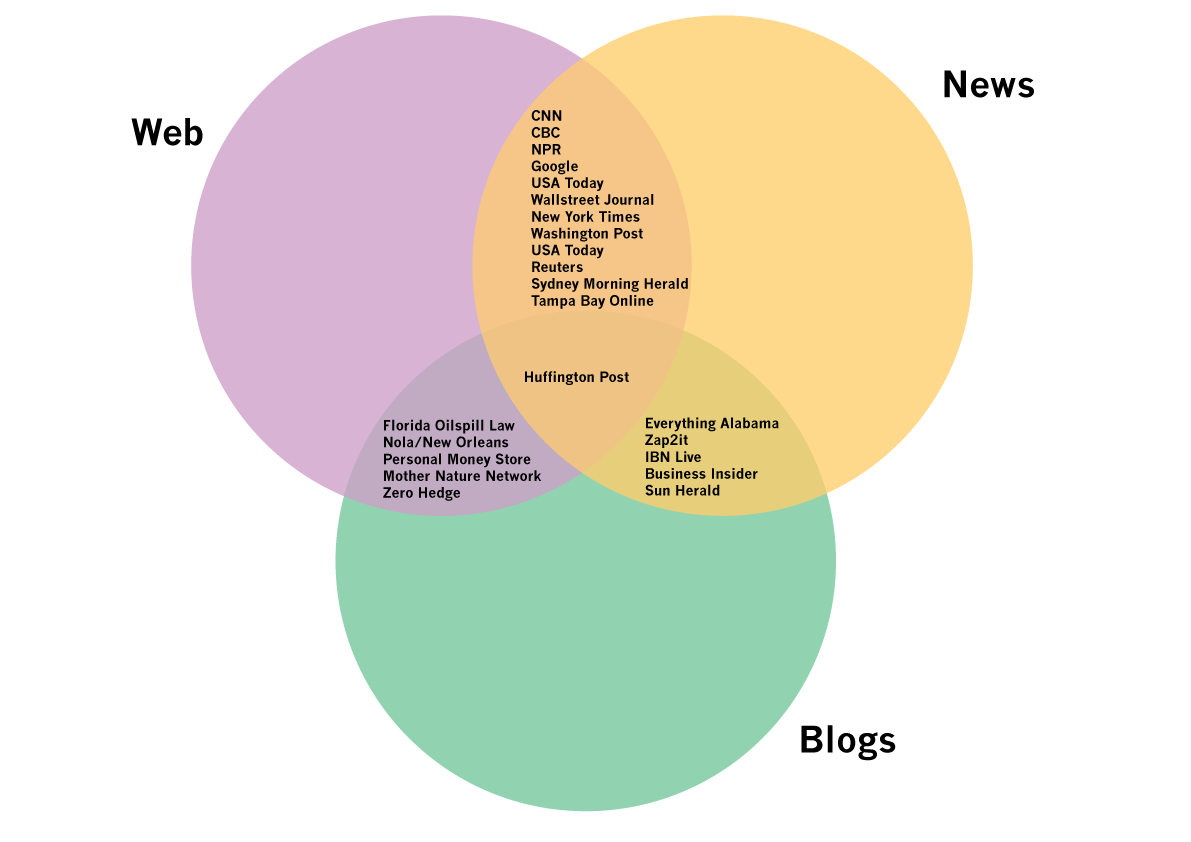 Uniques / Overlaps in Spheres
Uniques / Overlaps in Spheres
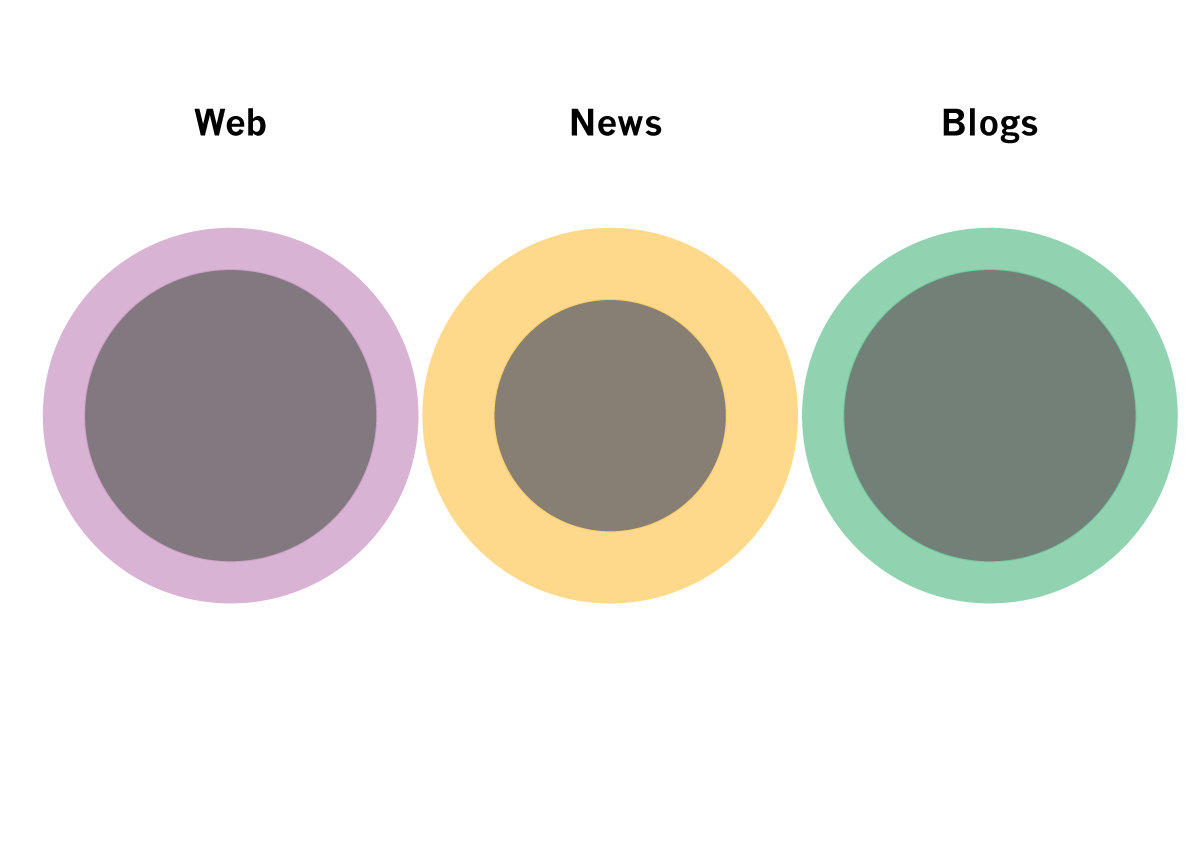
- How social are the spheres? Does categorizing spheres even make sense?
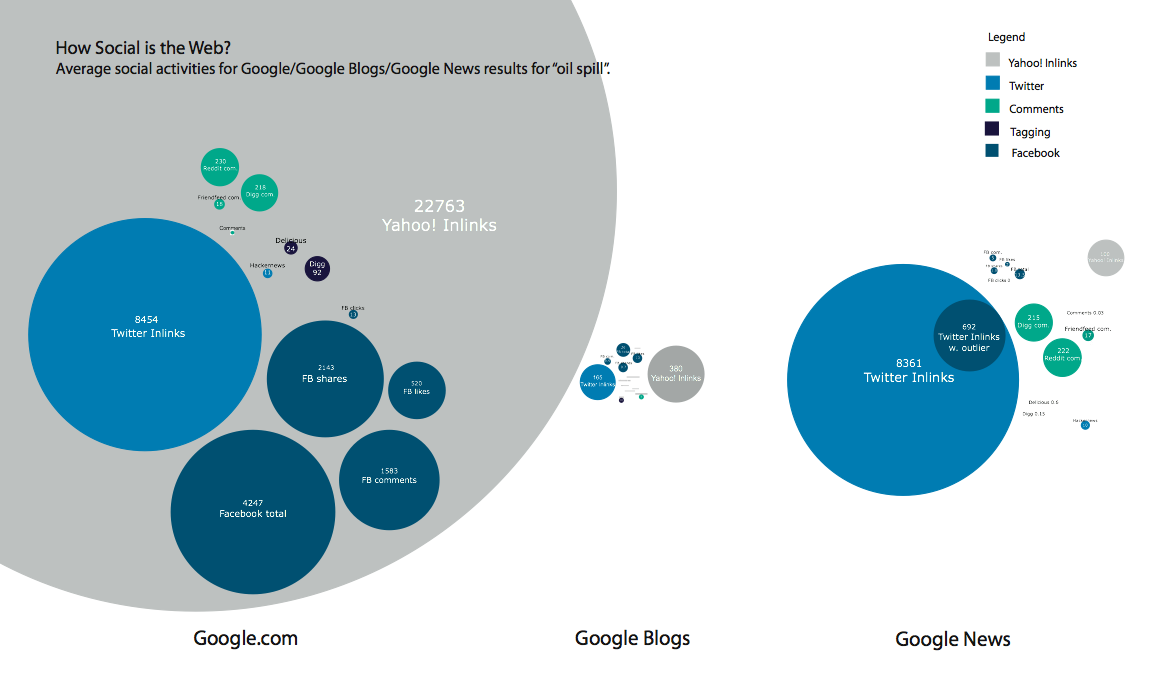 Zoom in: Blog Sphere
Zoom in: Blog Sphere
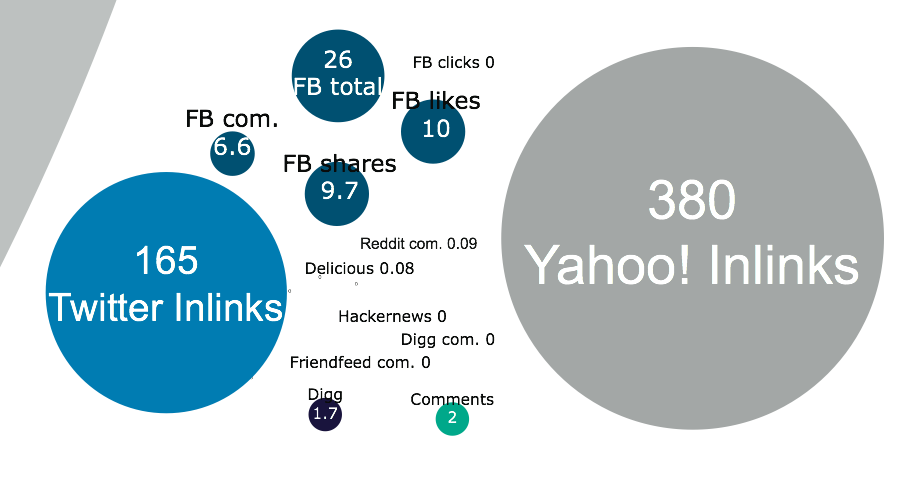 Zoom in: News-sphere
Zoom in: News-sphere
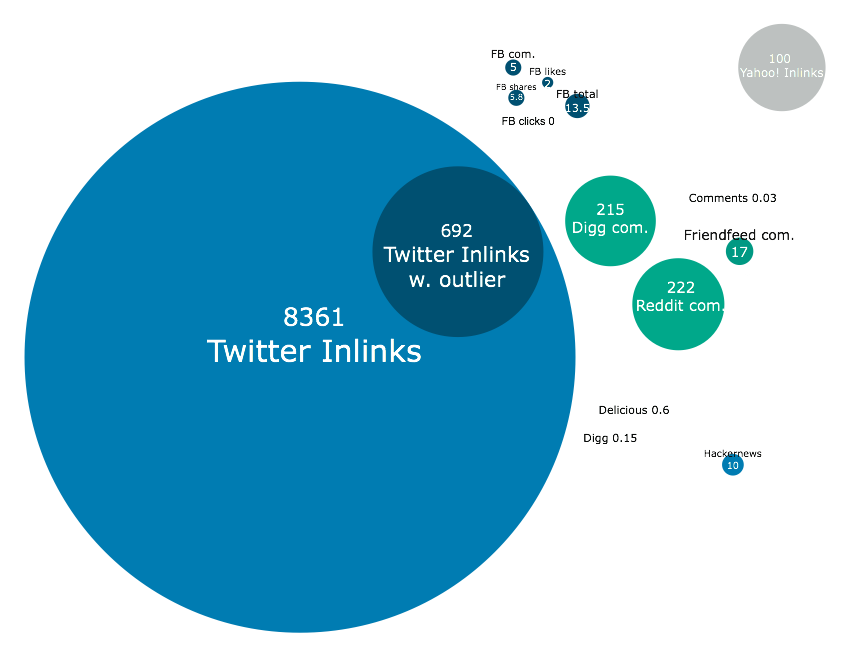 3. What types of sites are more likely to be liked, shared and commented on? Does this have anything to do with the presence of buttons to easily share sites?
3. What types of sites are more likely to be liked, shared and commented on? Does this have anything to do with the presence of buttons to easily share sites?
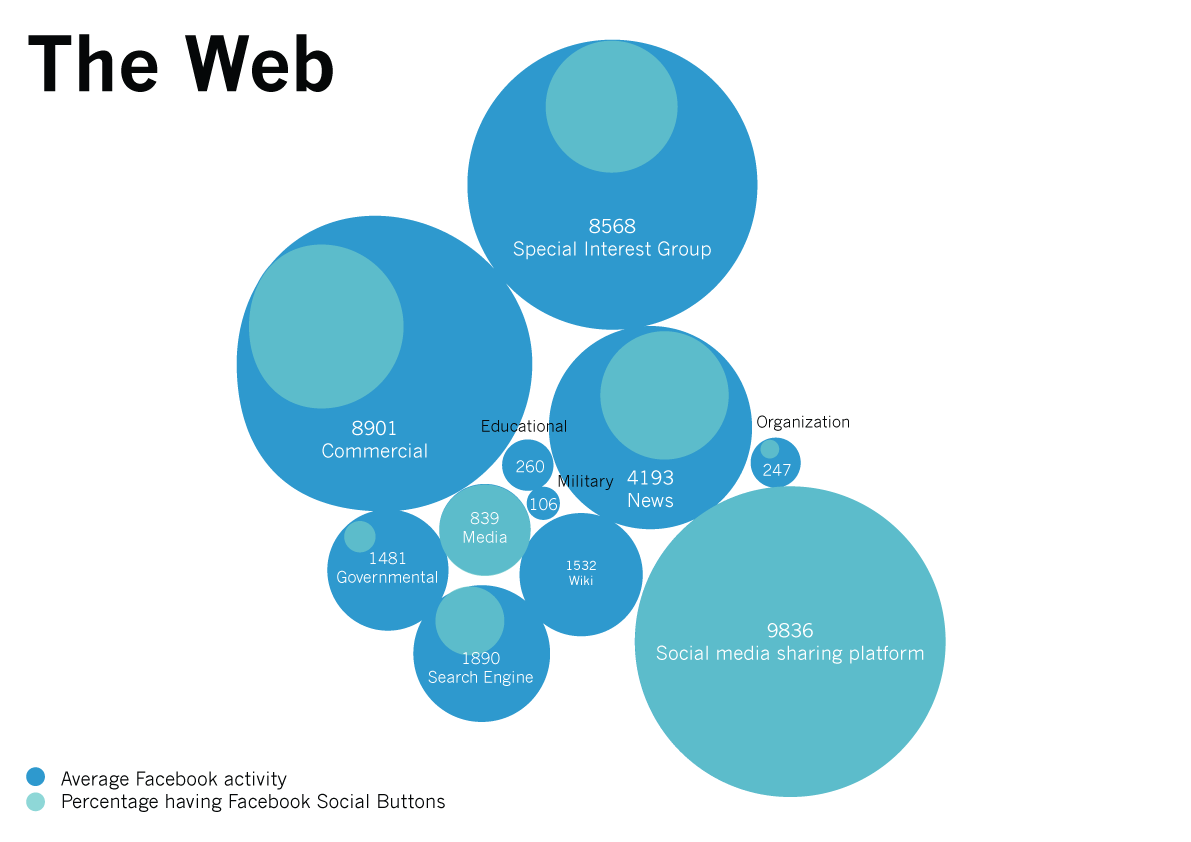 Which Blog categories do generate the most activities on Facebook?
Which Blog categories do generate the most activities on Facebook?
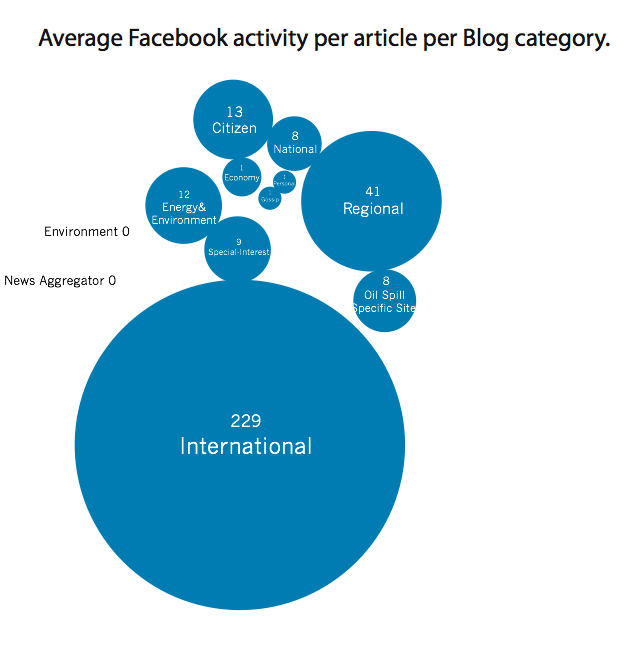 Which news categories do generate the most likes and shares on Facebook?
Which news categories do generate the most likes and shares on Facebook?
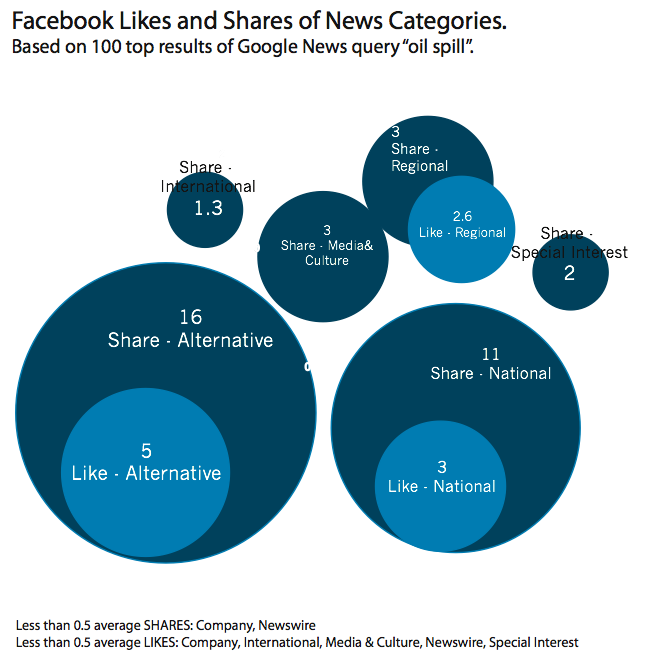 The Likeliness of Like (Websphere)
How does the activity of "liking" an article correlate with other social activities or with the position of an article in the Google ranking.
The Likeliness of Like (Websphere)
How does the activity of "liking" an article correlate with other social activities or with the position of an article in the Google ranking.
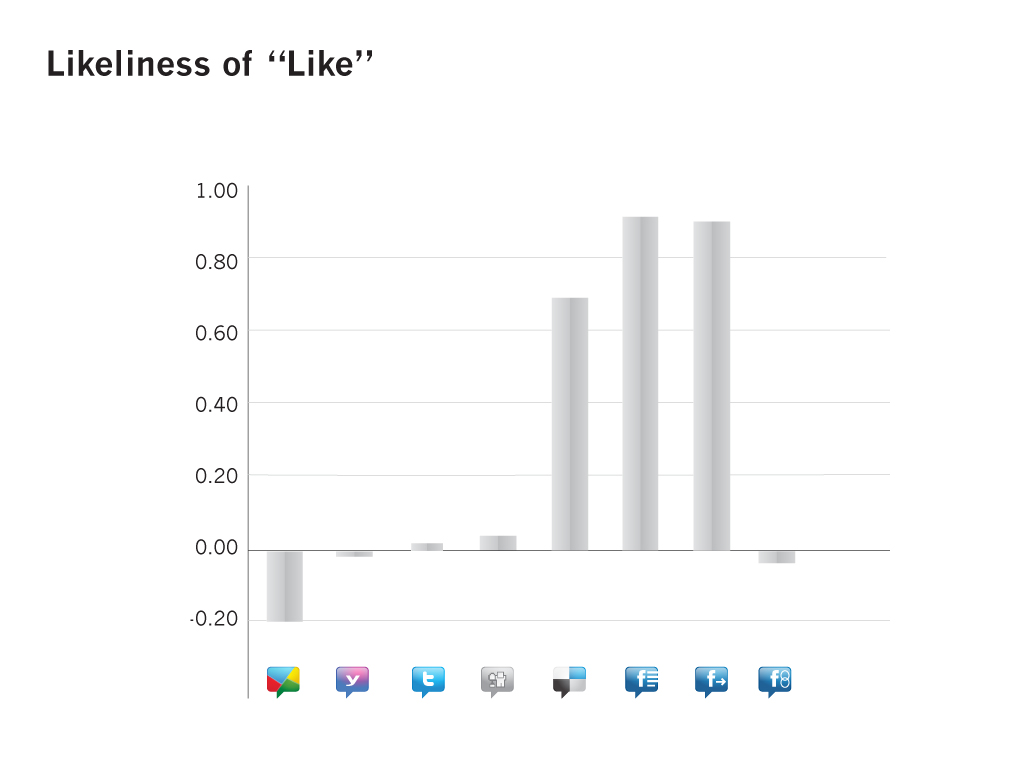
Issues and Limitations
Further Research
-- BrittneyFosbrook - 13 Aug 2010- overlappingspheres_withtemplate.png:

Edit | Attach | Print version | History: r9 < r8 < r7 < r6 | Backlinks | View wiki text | Edit wiki text | More topic actions
Topic revision: r9 - 27 May 2014, AnneHelmond
 Copyright © by the contributing authors. All material on this collaboration platform is the property of the contributing authors.
Copyright © by the contributing authors. All material on this collaboration platform is the property of the contributing authors. Ideas, requests, problems regarding Foswiki? Send feedback


